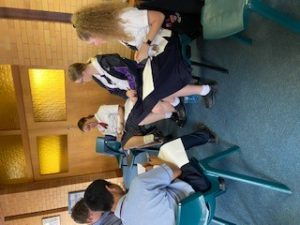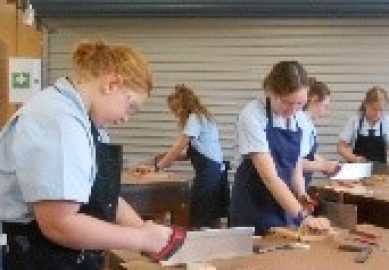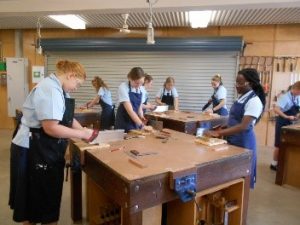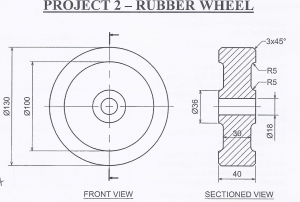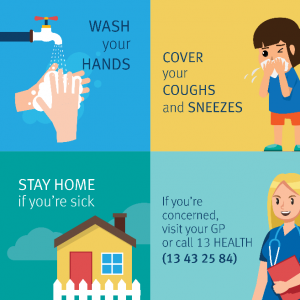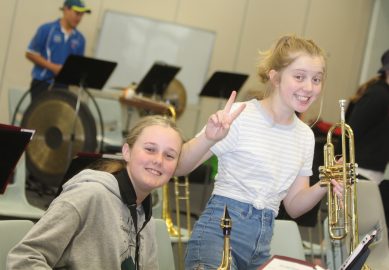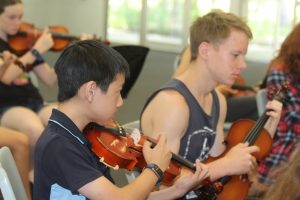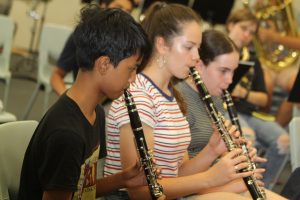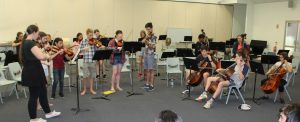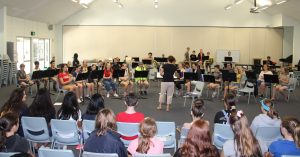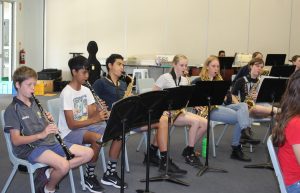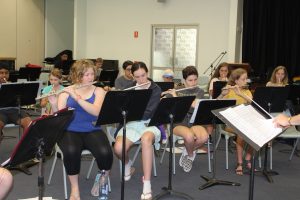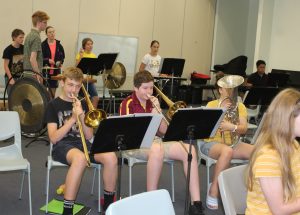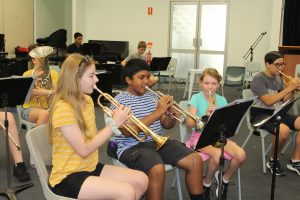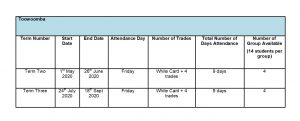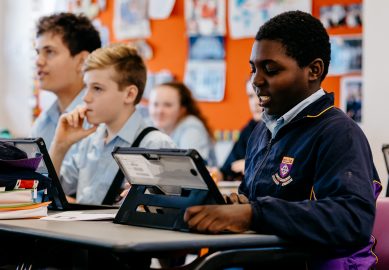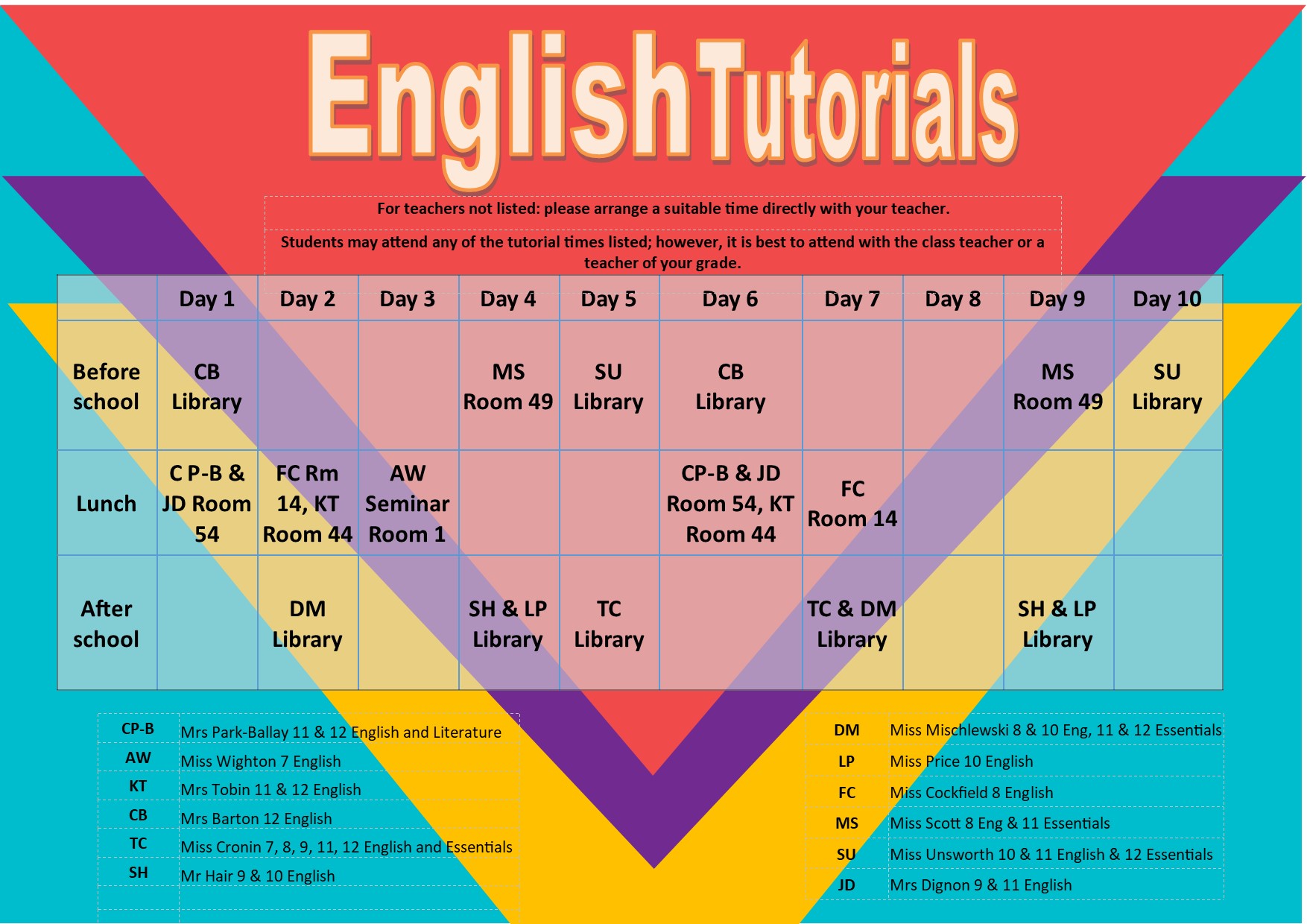Dear Parents and Caregivers
During the breaks at our College I spend a lot of time out talking with students, playing the occasional game of handball, kicking or passing a football, or just generally assisting with playground duty and observing the interactions between the students. On occasion during these times I will have to deal with students who have made a poor decision regarding their actions and this has resulted in inappropriate behaviour. When we enter a discussion about their behaviour and the catalyst for the behaviour, more often than not the concept of peer pressure becomes evident.
Peer pressure can start when we are very young and continue well into our twilight years, but it does seem to have its most intense influence during the adolescent years. This is the time when our children are striking out on their own and trying to identify who they really are. Childhood guidance from parents and carers and rules no longer suit their needs. They might try to give the impression that they can now stand on their own two feet, but those legs above their feet are rather shaky and they need us to be there for them as never before.
Facing peer pressure is a natural part of growing up and whether or not our children give in to its negative aspects, will have a lot to do with the kind of relationship they share with us, their parents. As we all know, establishing a good relationship with our children takes time and needs continual nourishment. The pillar of our relationship should be the continued message to our children that they are always loved and accepted for who they are, no matter what.
The forging of a bond with our children that will make them feel loved and accepted for who they are, will give them a sense of security. This security will give them the strength to stand up for their values and beliefs. Our children’s beliefs about certain things may be different from ours, because the world has moved on since we were young. We need to allow them their beliefs and respect them even if they appear to be not well informed. We can encourage them to stand up for what they believe in and so let them know that their opinions matter. We might not always be in agreement, but we can provide them with the opportunity to share their opinions, and so let our children know they have an unconditional support system.
From an early age, we should encourage our children to make their own decisions. We can guide them towards the right thing to do when dealing with a friend who is teasing, or what stance to take in a disagreement amongst peers, but the final decision should be theirs; accepting and dealing with any consequences should also be theirs. Young people want to make their own decisions and if they have good information, self-confidence and our love to back it up, they will mostly make the best choices.
The more our children know about dangerous behaviours the less likely they will engage in them. Often, the reason adolescents take part in self-destructive behaviour, is because their friends glorify it and do not talk about the risks associated with it. If parents provide this information, children may be less inclined to adopt the poor behaviour of others.
We need to keep building self-esteem into our children. Good self-esteem will help them realise that if another person does not respect them and tries to “ride right over them”, then, that person is not worthy of their friendship. Adolescence is a worrying time for parents, but if we always keep the lines of communication open, know when to give advice and when to just listen and be there for them, then our ride through this period can be a lot less stressful.
This week we pray that the students in our community understand the reality of what peer pressure is and can develop the skills to deal with it in an appropriate way.
Dear, Lord!
Thank you for being my constant companion and friend.
Please let our students know that they will never have a greater friend than you.
During these years when friendship plays such an important part in their lives, please surround them with friends who you know will grow up to be positive influences in their teenage years.
We pray that they will choose to walk with wise friends and they will grow wise together.
May our students never be a companion of fools and suffer the harm of such a choice.
In Jesus’ name we pray.
Amen
Fee Contribution
Recently the College sent out letters to parents / caregivers with the invoices for Term 1 school fees. When families enrol their children at a Catholic School, they are asked to enter into an agreement for the payment of School Fees. The level of fees is kept as low as possible, so the school is available to all families seeking a Catholic Education for their children. This level is decided on the assumption that as a community all families pay a share of the school’s costs through the regular payment of School Fees.
The College’s expectation around school fees is that:
- Fees are paid in full after the account is received and by the due date; or
- An arrangement is made for regular FREE Direct Debits to the school bank account, so as all fees are paid on time; or
- In cases of financial hardship, the parents/caregivers make a confidential arrangement with the Principal for part payment, extended payment, concession or exemption of the fees amount.
Many thanks for your attention to this matter and your continued support of our College.
Mobile Phones
It is with disappointment that I am having to address the expectations regarding mobile phone usage at our College. A large number of mobile phones have been confiscated so far this term for inappropriate use and I would like to remind all parents and students about the rules that exist in regard to mobile phones. I make this reminder, hoping that we will have a reduced number confiscated over the rest of the year.
Mobile Phones;
* Are to be switched off and kept out of sight during the school day, stored in lockers.
* The College takes no responsibility for the loss of or damage to mobile phones of students.
* Students who use a mobile phone in a manner contrary to the policy will have their phone confiscated for the day. If a student has their phone confiscated three times in a term, then the student will have a meeting with their house leader. If a student has their mobile phone confiscated again after this meeting then their parent / carer will be required to attend a meeting with the Assistant Principal Student Engagement / Deputy Principal or Principal.
I thank the parents and students for their support in ensuring we continue to provide a safe environment for the students to learn in.








